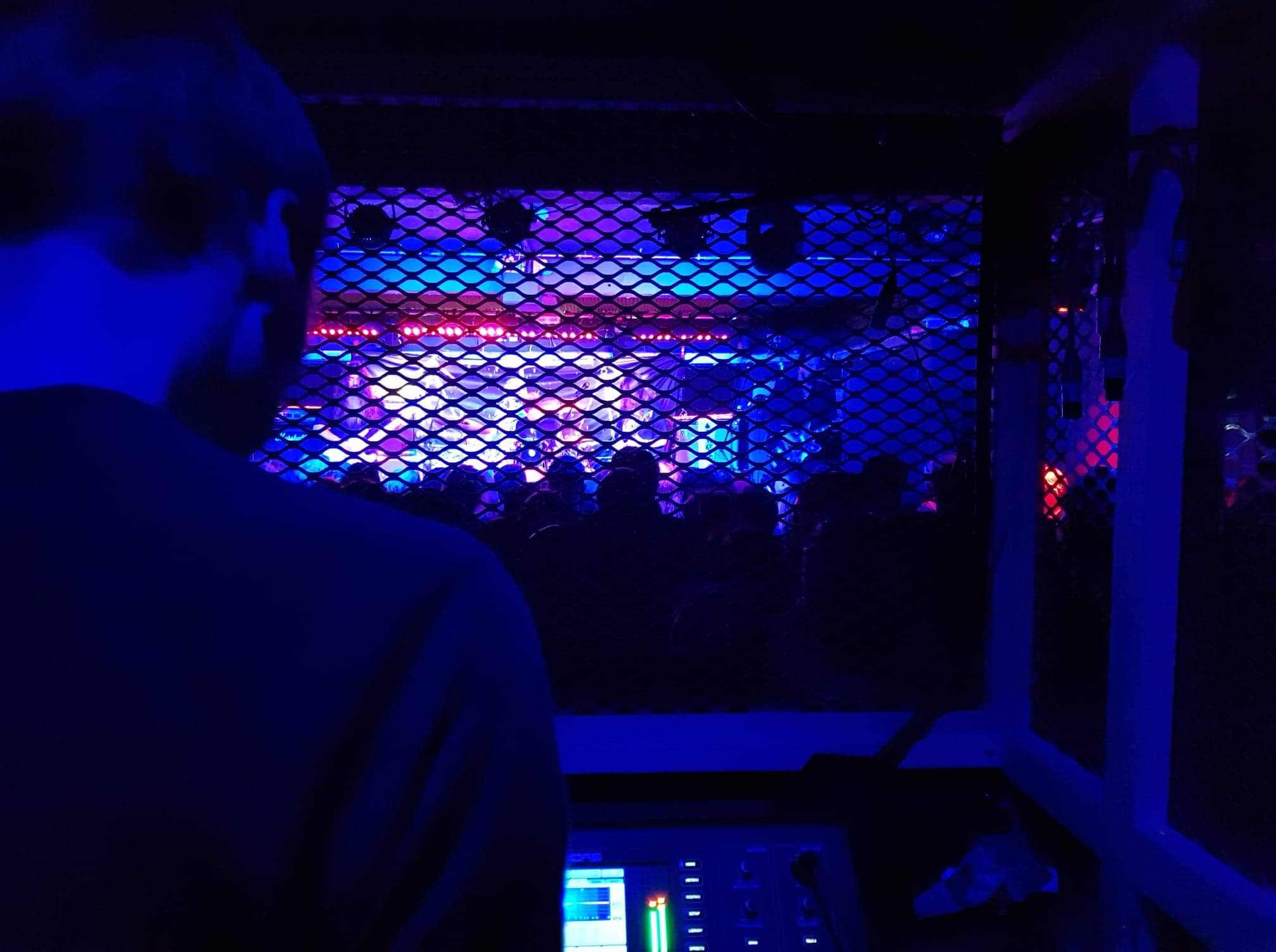Tetrarch guitarist Diamond Rowe: "We're really looking forward to doing some big things"
The US four-piece are metal's ones to watch in 2021 with their new album Unstable
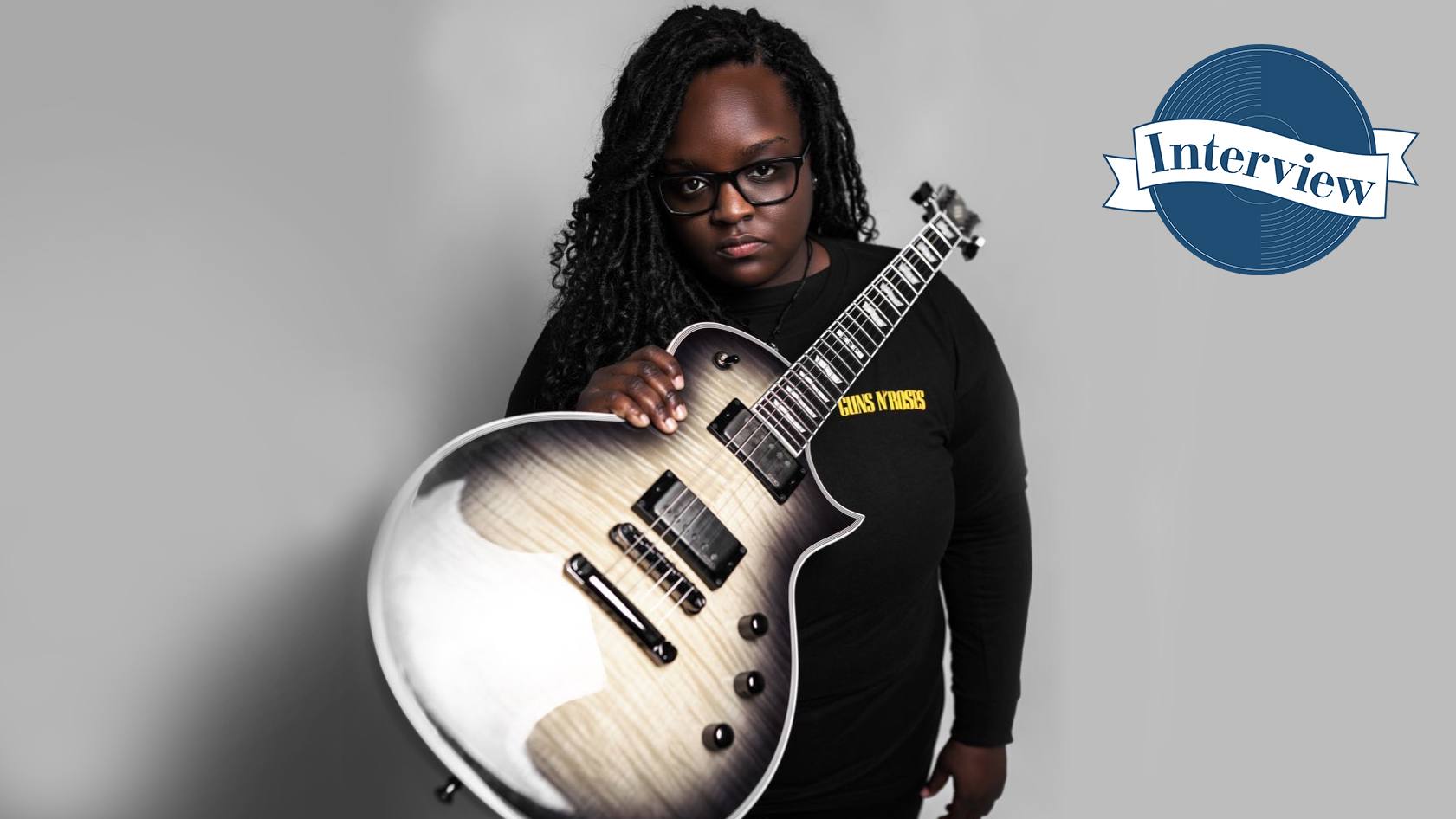
Want all the hottest music and gear news, reviews, deals, features and more, direct to your inbox? Sign up here.
You are now subscribed
Your newsletter sign-up was successful
At one point in time, the genre known as Nu Metal was a cultural phenomenon. The alternative music scene had become dominated by the downtuned guitars and harsh vocal stylings of bands like Korn and Slipknot, and by the turn of the century the sound had fully crossed over into the mainstream. While the intervening years may have not been kind to the public perception of Nu Metal, a quiet revival has been steadily gaining momentum - and Los Angeles based metal bruisers Tetrarch are among the bands leading the charge.
“We are one of those bands that has always had really massive goals. We really want to be one of if not the biggest band in our genre”
The Atlanta-born, LA-based quartet have fully embraced the comparisons with the genre they loved while growing up, and are one of several prominent bands incorporating notable elements of nu metal as a part of a broader sound. Along with contemporaries such as Loathe and Code Orange, Tetrarch combine their trademark downtuned, aggressive guitar riffs with the tone, clarity and power of modern djent, all the while building towards anthemic, impassioned choruses.
MusicRadar caught up with lead guitarist Diamond Rowe prior to the release of their second album, Unstable. Just a few minutes into our discussion, it is apparent that she means business. The band are nothing if not ambitious.
“We are one of those bands that has always had really massive goals. We really want to be one of if not the biggest band in our genre.”
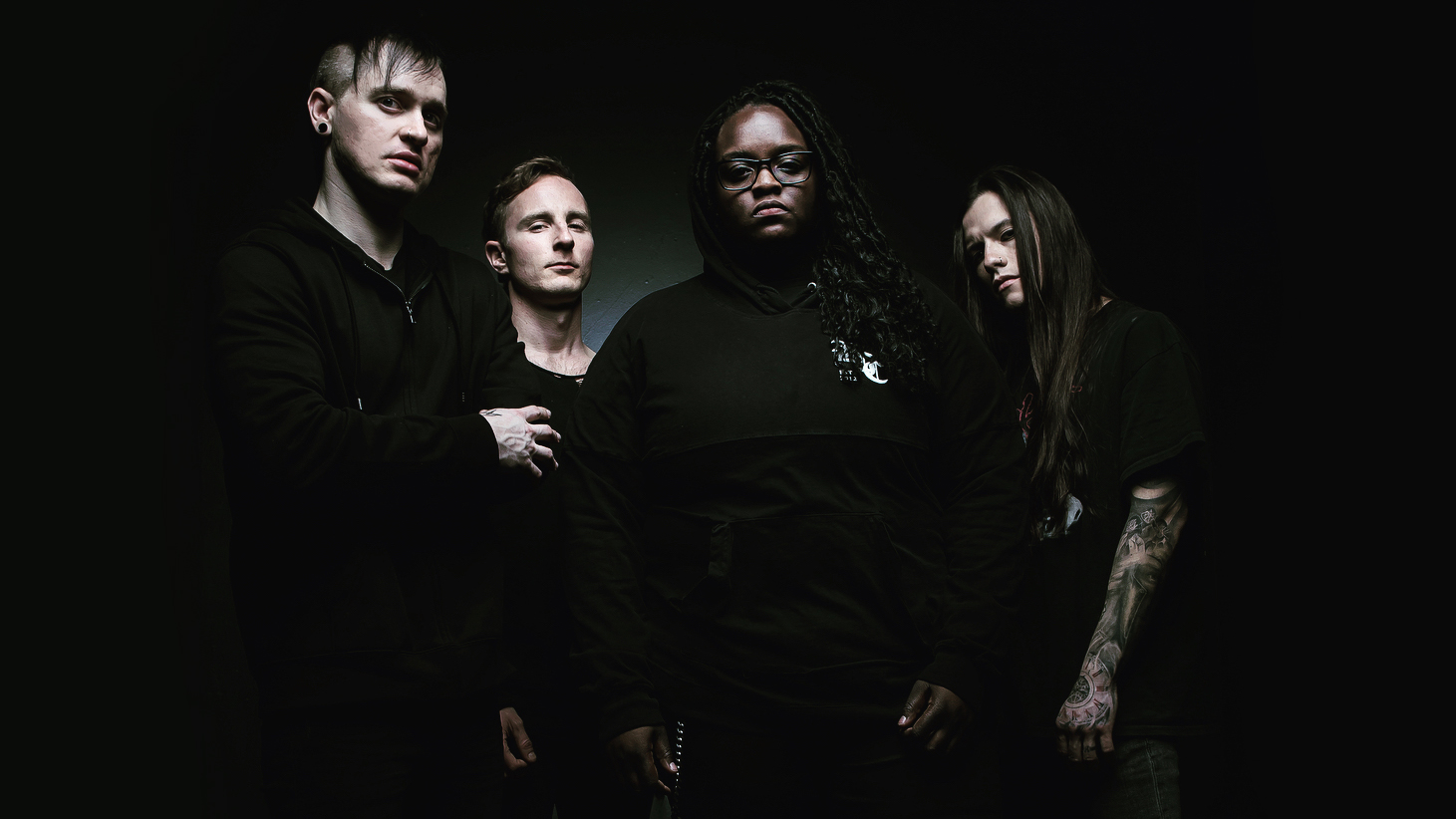
Tetrarch are aiming for nothing less than to be arena fillers – An extremely lofty goal for a modern metal band, but there's not a hint of arrogance in Diamond's voice as she lays out their ambitions - just a quiet confidence and an impressive amount of self-belief.
“We grew up in a time where heavy bands were finally becoming huge.” Diamond tells us. “You had Slipknot and Korn and Linkin Park all in the mainstream at the same time. We've always admired bands like that, bands who are able to keep their edge and heaviness whilst still having some mainstream appeal. If I had to describe us in any way, it would be like that. Ultimately our biggest goal is to become headliners. Whatever helps us get to that position.”
“We try not to put ourselves in a box because we have so many influences, ranging from nu metal to hard rock to regular American metal. We tend to just call ourselves a metal band, but we like to be one of those bands where we have moments where we can be very heavy - Heavy bridges, heavy verses - but we like to incorporate and make sure that we always include melody. We like to have big choruses, big hooks that people can catch onto and be drawn in by.”
Want all the hottest music and gear news, reviews, deals, features and more, direct to your inbox? Sign up here.
There are indeed plenty of big hooks. The choruses throughout Unstable are infectious and immediately memorable, and vocalist Josh Fore has a strained, raspy delivery to his singing that channels the much missed Chester Bennington. Also present here are the universally understood themes of alienation, rejection and, ultimately, overcoming your own inner demons.
“When we started writing this album, we wanted to make sure that there were topics on it that everybody could relate to or identify with because that's how most people connect with you and your music.” says Diamond. “We are kind of the epitome of getting through anything negative and persevering in our career as a band. Throughout our journey there's been many times we have been told no, and we've had the wrong people talking in our ear to make us feel like feel like we weren't good enough.”
“A lot of the lyrical content on the record is about that, a lot of it is about things we've seen people we are close to go through. There's a lot of things on there that anyone can relate to at some point in their life.”
The band have built their reputation through many years of hard touring, self-releasing their own debut album Freak in 2017 before signing with Napalm Records. All eyes are finally starting to turn towards them, but this is far from the tip of the summit as far as Diamond is concerned.. She and Josh began playing together when they were 12 years old, and it was Diamond's love of hard rock and metal music that brought her towards the guitar rather than the other way around.
“Josh and I met when we were 12 years old and started playing shows not long after that. Talent shows, house shows in our parent's basements, all sorts of local shows... So we really have been playing since we were little kids. Shows in general are just the best way to sell ourselves.”
“I took lessons for about a year or two when I started playing, but really my passion for guitar came from learning my favourite songs.” she tells us. “I was never a huge theory person, nor did I learn much about scales or anything like that. For me, it was all about the joy of learning how to play my favourite songs by my favourite bands. Pantera, Guns N' Roses, Megadeth, Lamb of God... Bands with great lead players. Learning to play their songs helped me develop my playing style more than you would think.”
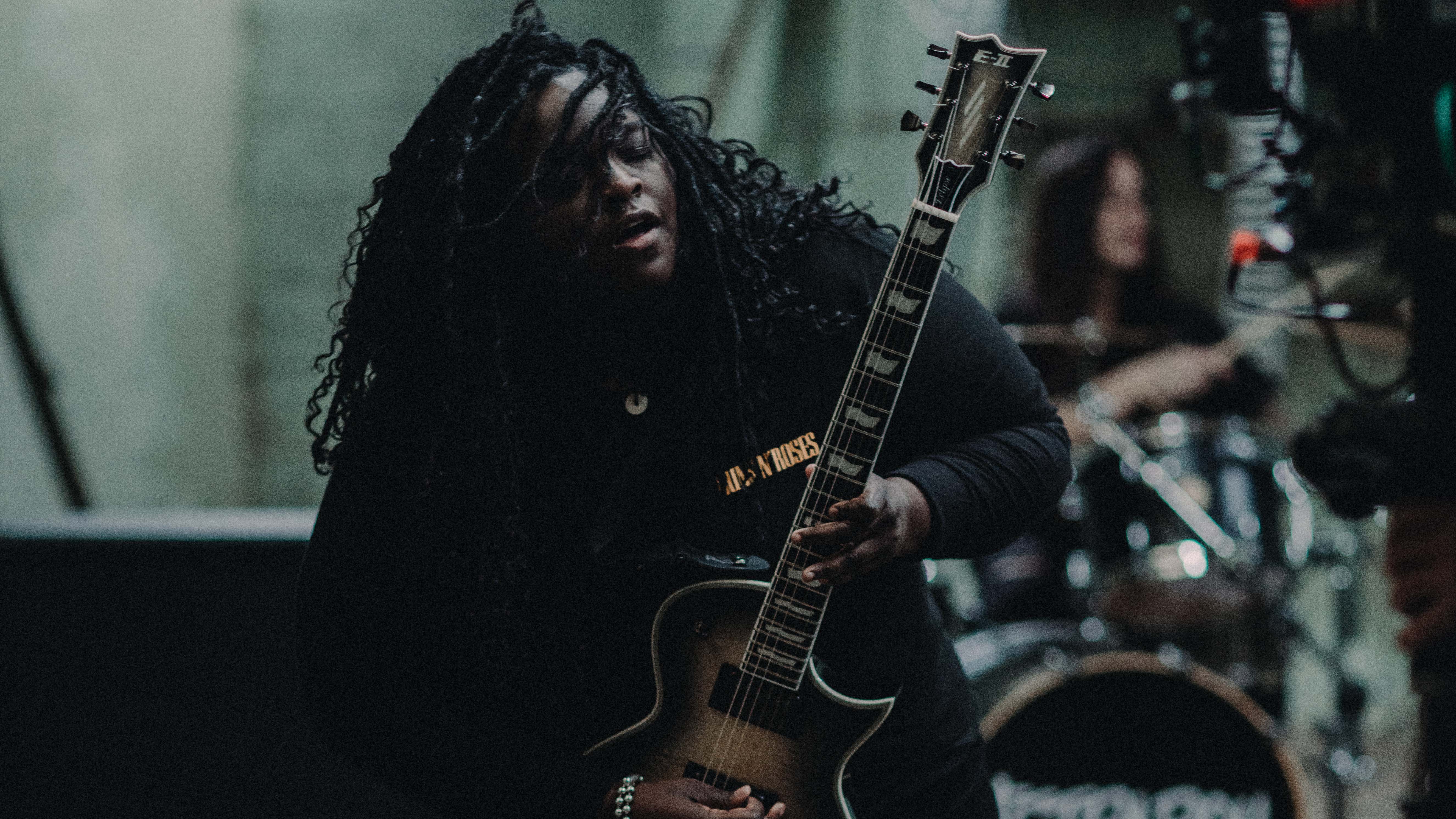
"I was always excited to learn a solo or a riff by one of my favourite bands and have it sound like them"
Another thing which sets Tetrarch apart from the pack is Diamond's inventive and fearsome approach to lead guitar and solos. Nu metal is historically known for eschewing guitar solos in favour of more rhythmic and percussive playing, something Diamond does not seem keen on repeating.
“Bands that had clear cut guitar heroes among their ranks were always my favourites, you know? People like Zakk Wylde or Alexi Laiho from Children of Bodom. That helped me a lot because it kept me excited about the guitar and about the instrument. I was always excited to learn a solo or a riff by one of my favourite bands and have it sound like them. When you are 11 years old, that's a crazy feeling. That's kind of what did it for me early on.
“My first favourite band in the rock genre was Nirvana, but that kind of segued me into System Of A Down and then everything else from there. But it was definitely metal from the beginning that captivated me and made me want to learn the guitar.”
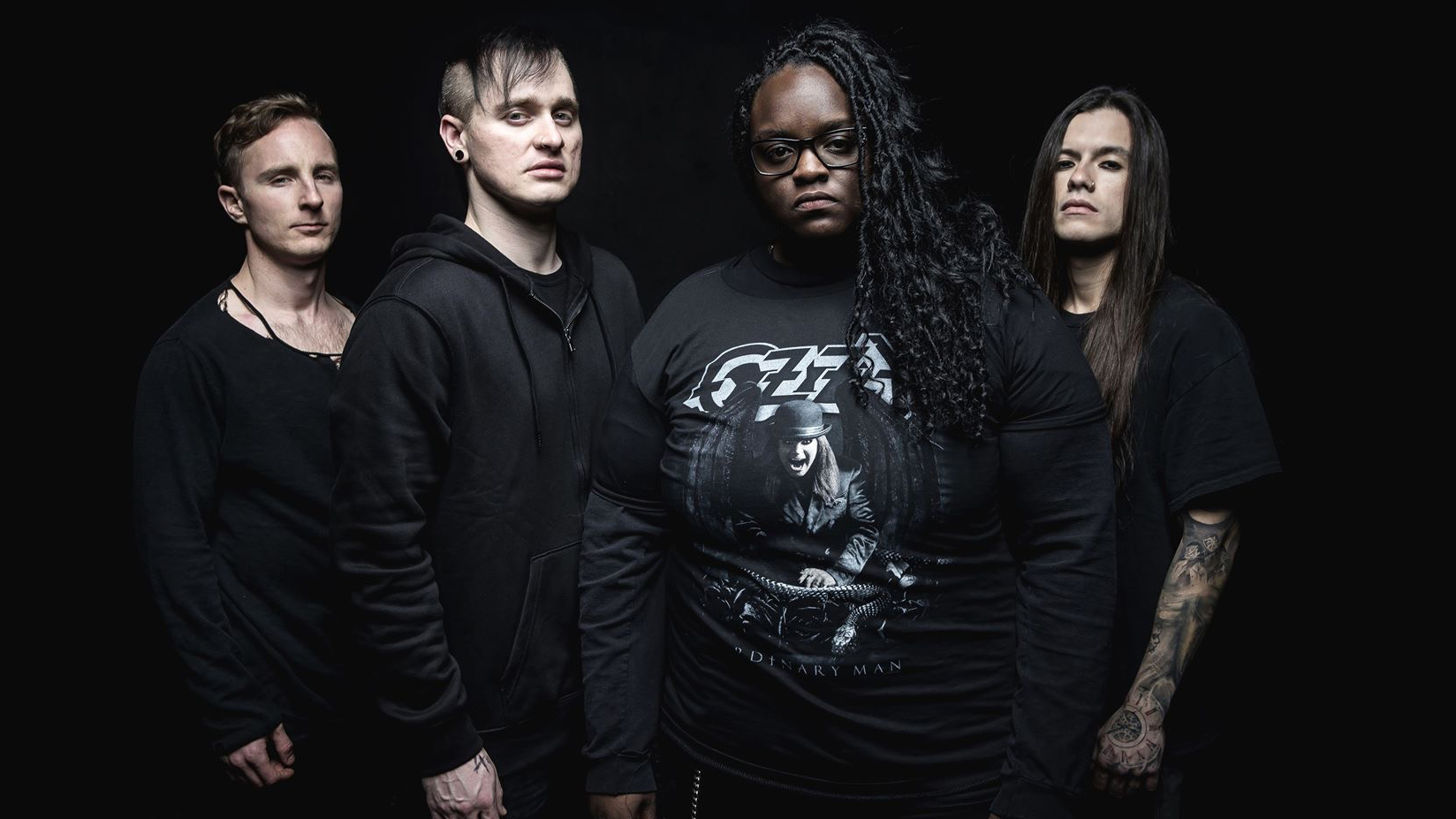
"That's the thing with EVH, they're able to produce amps that allow for such heavy gain sounds and create such heavy tones, but still keep that clarity"
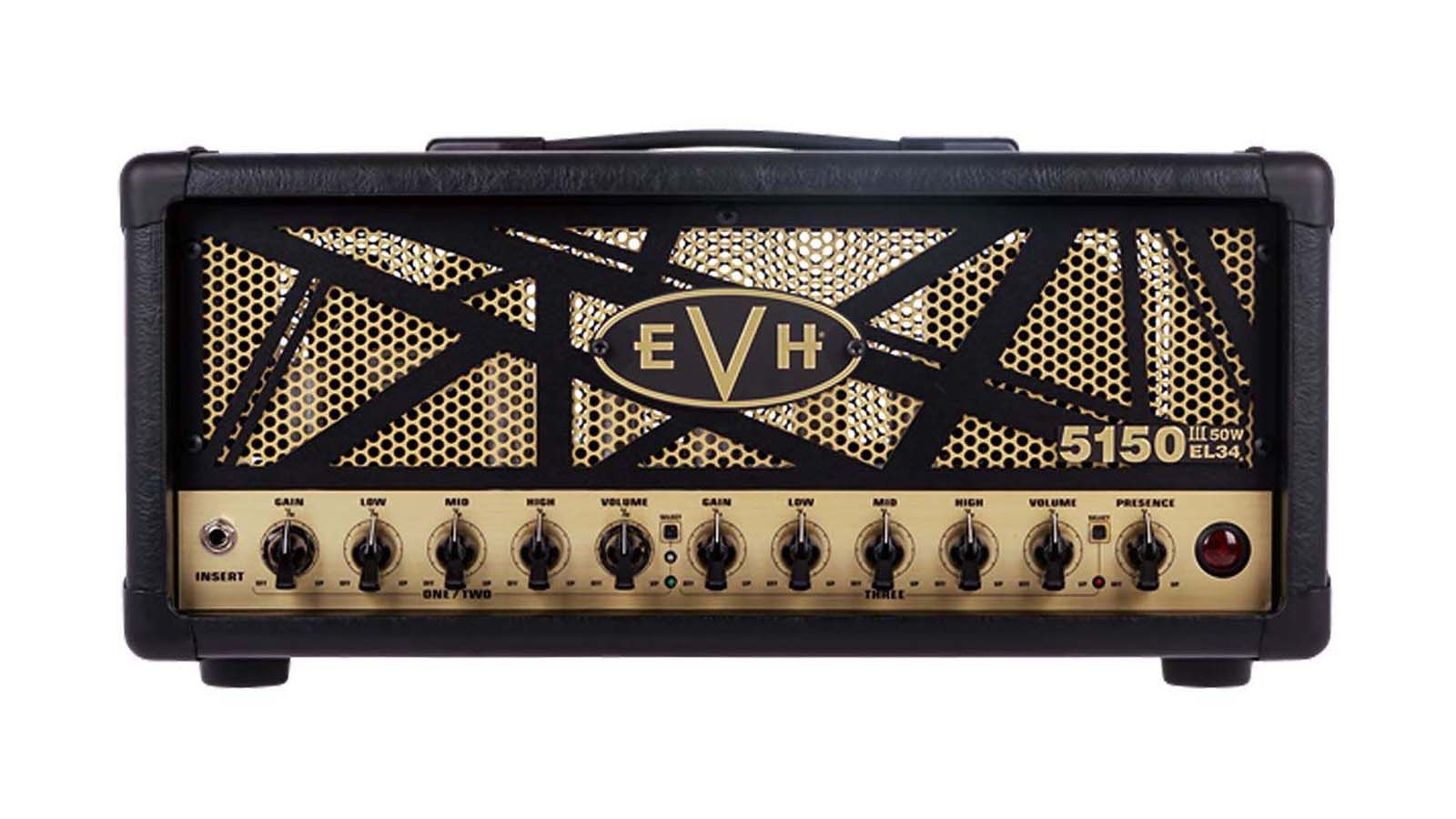
In the world of modern metal, tone is everything – A fact not lost on Diamond and her bandmates. Her partnership with EVH has her using the 5153 both onstage and in the studio, a classic high gain amplifier that helps keep Tetrarch's sound raw and brutal rather than overly polished.
“It's probably no surprise that as a metal player, I'm a gain fanatic. I just love the sound of high gain – not to cover up any bad playing ability or anything, I just love really saturated amps. I used Mesa amps for a long time before I switched over to EVH. I just like the really saturated sound that comes from playing amps that are designed for it.
“The good thing about EVH is that their amps still keep the clarity. When you have songs that are more riff heavy, it's really important that the amp is not so saturated to the point where the riffs start to sound muddy when you crank the gain harder. That's the thing with EVH, they're able to produce amps that allow for such heavy gain sounds and create such heavy tones, but still keep that clarity - That was really important for me.”
It is also evident from talking to Diamond that the band are proud of their ability to just plug and play, relying on a few key pieces of gear rather than an abundance of technology to achieve their signature sound.
“As a player, I've always had the mindset of 'don't fix what isn't broken' – so I've had the same pedals on my pedalboard for a long time now.” Diamond says. “There's the tone that if you listen to the record you'll hear - That sort of weird eerie Korn type tone. We make it using a couple of different pedal combinations. There's a Uni-Vibe, a reverb, a delay and a chorus. I use a lot of Whammy as well, so I've got my Digitech Whammy on the board.
"I also have a ground control MIDI switcher that I use to switch patches that turns all of those pedals on and off. That's basically it, nothing too complicated - And we use all of those pedals to create that one tone. We've always very much been a plug and play band, we try to keep it as simple as possible so we can spend time putting on a show onstage, but I do have those pedals to kind of make that one tone.”
"People have asked a lot if we are going to go digital, and there's just something to me about that feeling of having that amp onstage"
With amp modellers on the rise in metal, providing both quality and convenience, was Diamond ever tempted to use them, or was the allure of a loud amplifier onstage blasting out too much to part with?
“You know, I'm kind of old school in that regard.” she elaborates. “I love having a loud amp. People have asked a lot if we are going to go digital, and there's just something to me about that feeling of having that amp onstage and when you hit a particular chord, you can just feel it resonate and instantly know that it is a real amp. I really like that. I know I sound like an old woman!”
“Everyone's like, "Dude, you gonna get an Axe-Fx or something?" and I'm like nah, I just really like having an amp behind me. There's so many bands that do utilise digital equipment that sound absolutely amazing live, so it's definitely more of a preference thing. I just love that feeling of having an amp behind me onstage.”
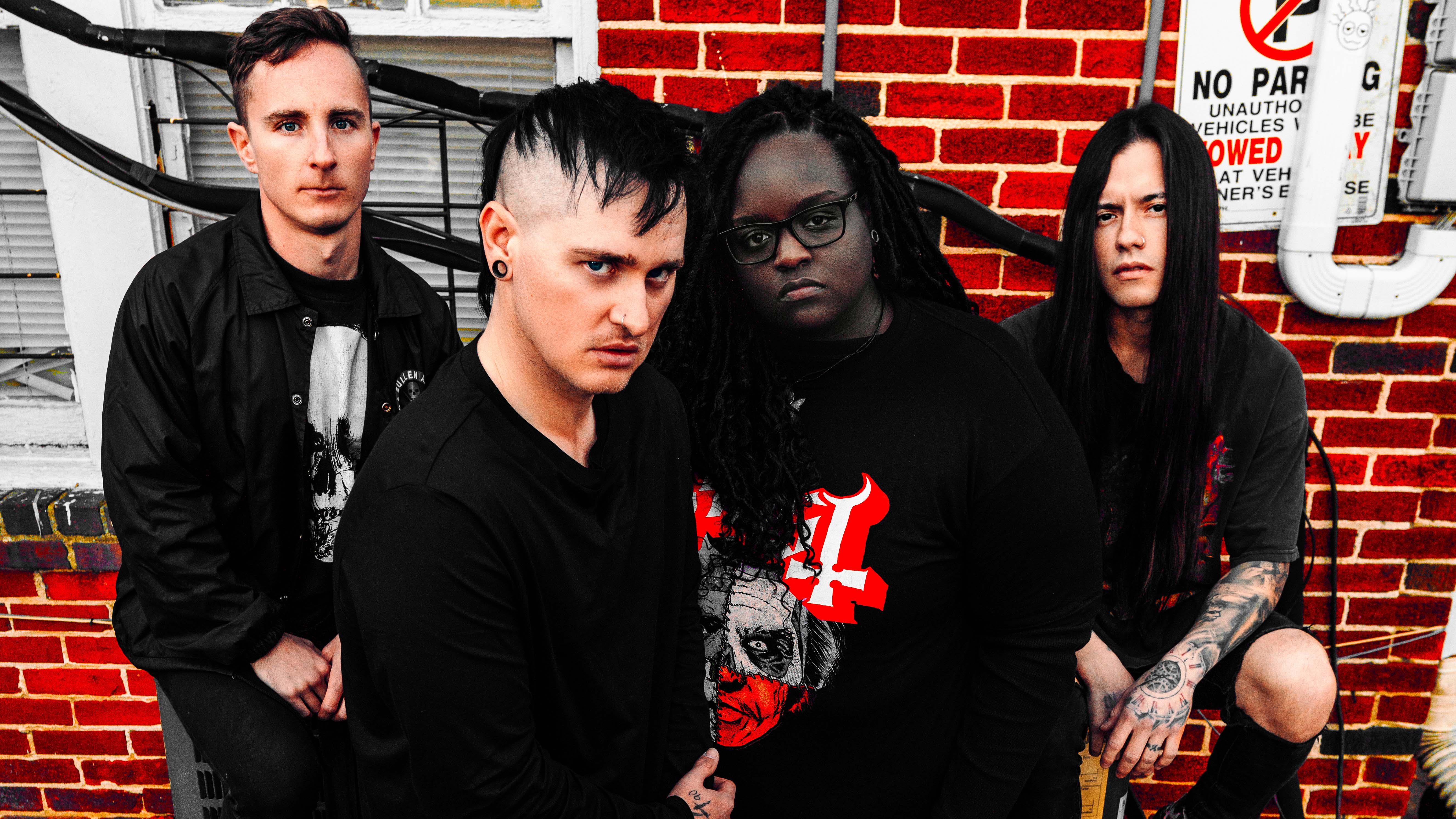
The ongoing global pandemic has thrown a spanner in the works for almost every band, and you'd think this would be an even bigger hindrance for an up and coming band like Tetrarch - A band who have been using their live show to win over audiences. Instead, it has allowed them to refocus on building momentum in different ways.
“We consider ourselves 100% a live band, so it was definitely a little scary at first.” she says. “One thing we have learned in this business is you need to know how to adapt. You never know what is going to happen. Obviously nobody could have foreseen the pandemic, but we had to figure out how to adapt once that happened which, for us, meant slowing down the release of everything and putting a lot of emphasis on the singles.
"We were really building anticipation. That helped get people invested in the actual songs a lot more. We really wanted to get as much mileage as possible out of each single, so doing it that way really helped us.
“It feels like in America at least, shows are going to start returning in late summer and hopefully by early fall there will be full on touring again, so we'll see what happens. We've just been trying to stay as active as possible and put out new music and as many videos as possible just to get everyone excited for when shows do come back.”
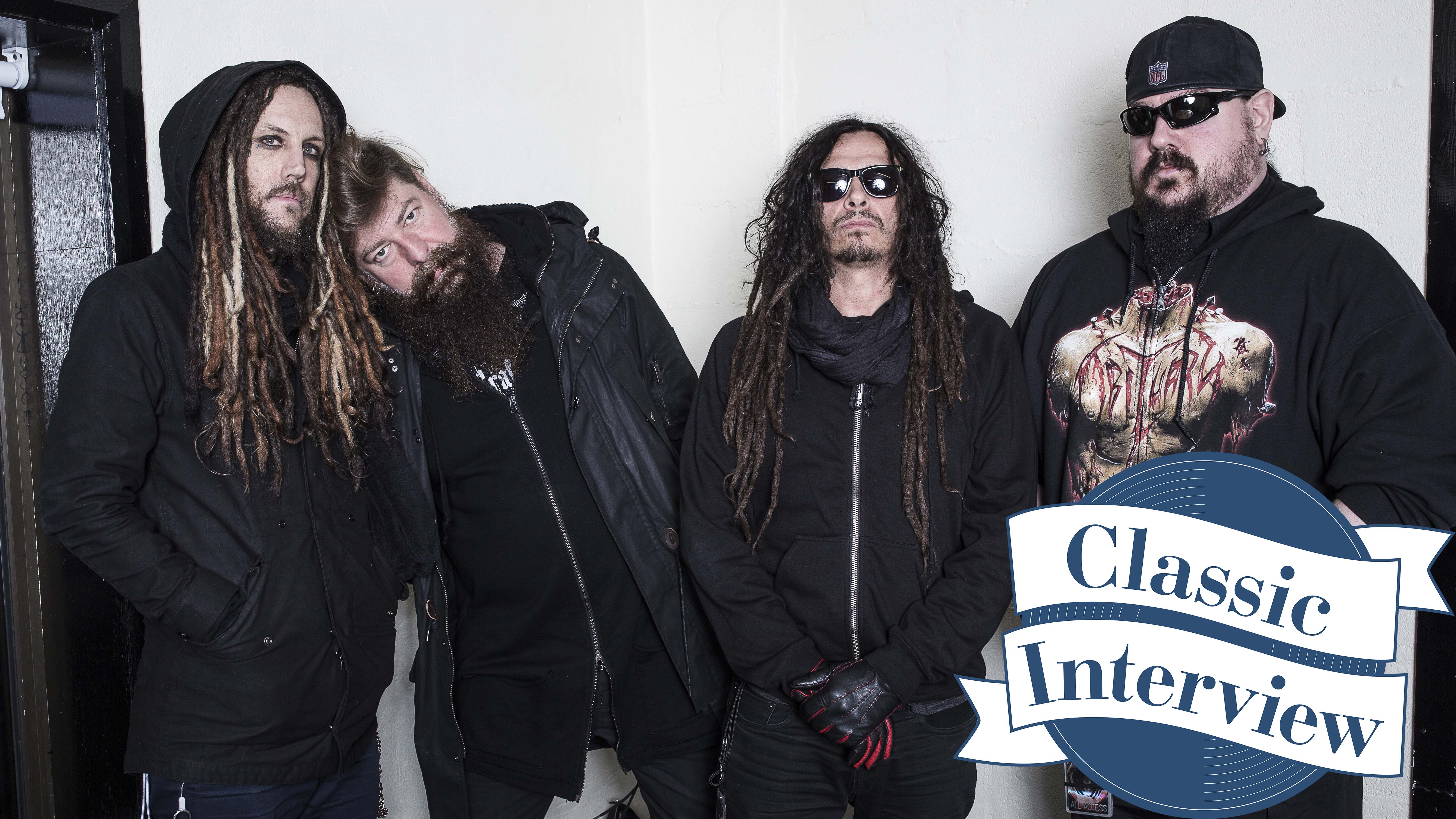
Nu metal isn't “back”, because it never went away. It has always been an umbrella term that encapsulates a wide variety of bands and sounds. Tetrarch are more than just the sum of their parts, and definitely not trying to recapture past glories. They're young, fired up and have a point to make, and are as keen to get in as many ears as possible while doing so. What's next for Tetrarch, and where do we expect to see them in a year from now?
“Our album comes out at the end of April, and we're really looking forward to doing some big things. We've already had some really great tour offers and stuff, some pretty big ones, so we're hoping by that point, we hope to be on the road for at least two years behind this album.
"We hope to be touring all over the world, wherever we can, just kind of being road dogs for a while and taking it to that next level towards where we are trying to go and to be the kind of band we want to be. Hopefully in a year's time we'll be well on our way to that, playing to as many people as we can and becoming a force to be reckoned with.”
Unstable is released on 30 April through Napalm Records. For more info head to tetrarchmusic.com
Sam Drower is a sound engineer, musician and all-around music junkie based in Bristol, UK. He began contributing to MusicRadar in 2020, when the global pandemic brought live music to a screeching halt. When not behind the mixing desk for various bands, he is playing bass for blackened mathcore group Host Body.
